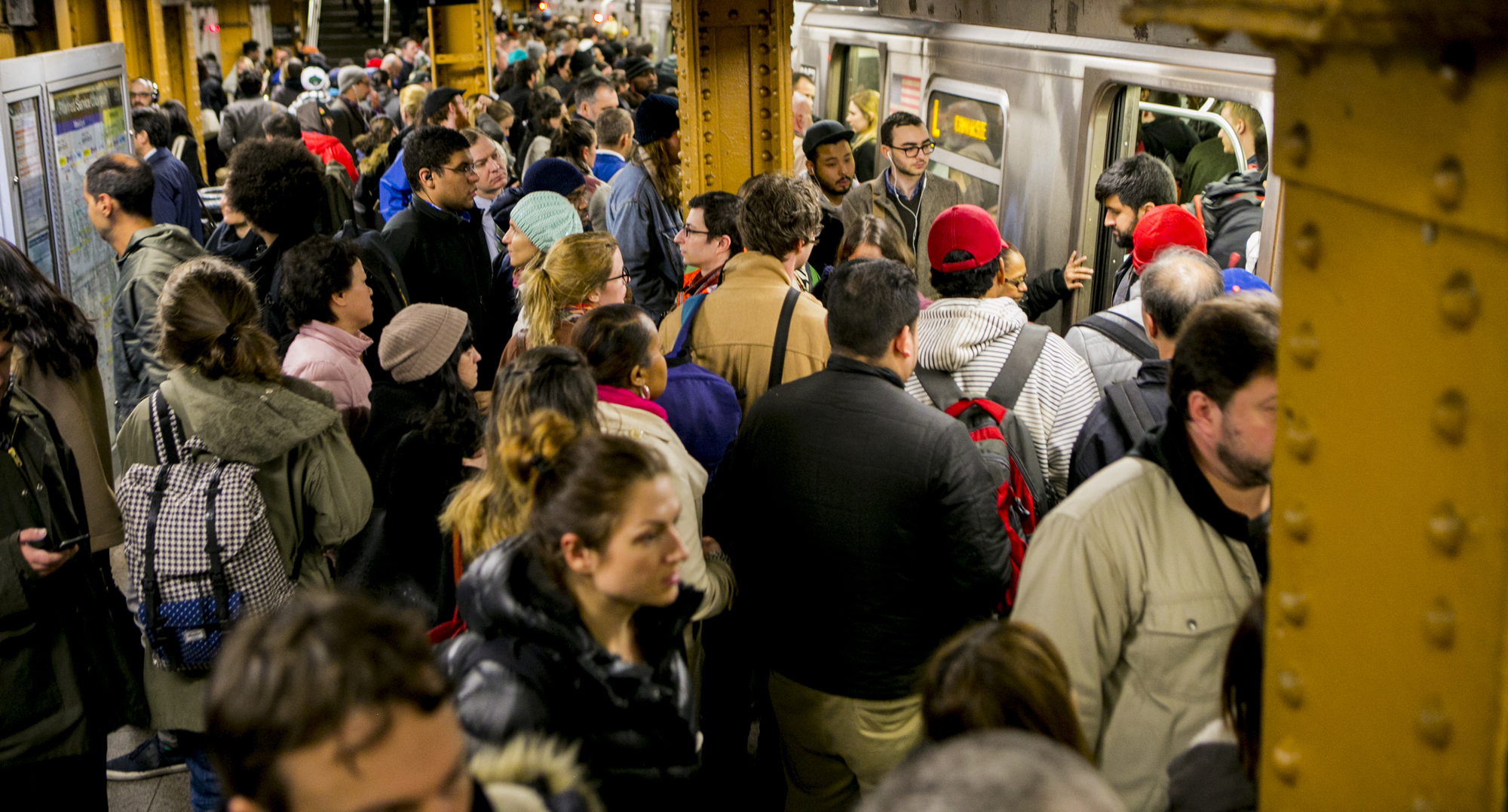In the wake of the pandemic and its devastating impacts on public transportation both on ridership and revenue, transit systems across the country are facing a funding crisis that could have decades-long impacts on workers and the riders who are dependent on public transportation. While ridership has steadily improved since 2020, budget shortfalls coupled with other factors, including inflation and rising transit operating costs, threaten to exacerbate what is referred to in the industry as the “transit death spiral”: transit agencies cut service or increase fares and in turn fewer people use public transport, leading to even greater declines in revenue.
In the short term, this feedback loop of declining service will have disproportionate impacts on those who rely the most on transit to get to work, medical appointments, the supermarket, and other important needs. In the long term, it will devastate recovery forecasts for public transit while worsening street traffic, air quality, and our overall economy.
We must not let this happen.
TTD calls on Congress to provide all public transit agencies with the ability to use federal funding for operations costs to ensure the long-term well-being of our public transportation systems.
While Congress provided short-term relief to transit agencies to cover operating costs during the pandemic, long-standing U.S. policy has limited public transit systems in areas with populations over 200,000 to using federal matching transit funds to pay for capital costs, such as rolling stock or other equipment purchases. Costs associated with operations, such as fuel, employee expenses, maintenance and other costs, must be 100% paid for with non-federal funds. Typically, those funds come from farebox revenues, non-federal taxes, or state support and local assistance. The federal policy of limiting federal funding to capital costs leads to two significant problems. First, because capital costs must be matched in local dollars, the federal government is incentivizing money to flow into capital and away from operations. Second, when non-federal funding sources are constrained or fall off the cliff, as we’ve seen most recently in the aftermath of the pandemic, transit agencies cut operating costs which means jobs are eliminated, service is abandoned, and fare hikes are imposed.
This flaw in federal policy is squeezing communities around the country. Officials in various cities across the United States have announced plans to drastically reduce or eliminate weekend, late-night, and commuter transportation services. In Boston, officials have warned of ending weekend service on the commuter rail and shutting down the city’s ferries. In Washington, weekend and late-night metro service would be eliminated and 19 of the system’s 91 stations would close. Atlanta has already suspended 70 of its 110 bus routes, and this move may become permanent. In New York City, which has the largest mass transportation system in North America, officials have revealed a proposal to potentially reduce subway service by 40 percent and cut commuter rail service in half.
These cuts would be particularly devastating as the administration doles out the largest investment in public transportation this country has ever made through the Infrastructure Investment and Jobs Act. These investments were intended to transform our public transportation systems; improve and expand service; and help ensure world-class service that keeps pace with the rest of the world. Instead, we risk undermining this generational investment and finding ourselves no better off in 10 years than we are today.
Transportation labor calls on Congress to enact a permanent solution that allows transit agencies to spend federal funds to help manage the ebbs and flows of the economy. Allowing the use of federal dollars for operations is the obvious solution to mass transit systems’ budget shortfalls during the worst of the pandemic, and must be continued as a matter of public policy. Without it, transit systems and their employees who provide vital services in communities of all sizes across the country will continue to vanish and we will all pay the economic price.
Greg Regan is president of the Transportation Trades Department of the AFL-CIO, representing 37 labor unions across all transportation industries, including transit.







